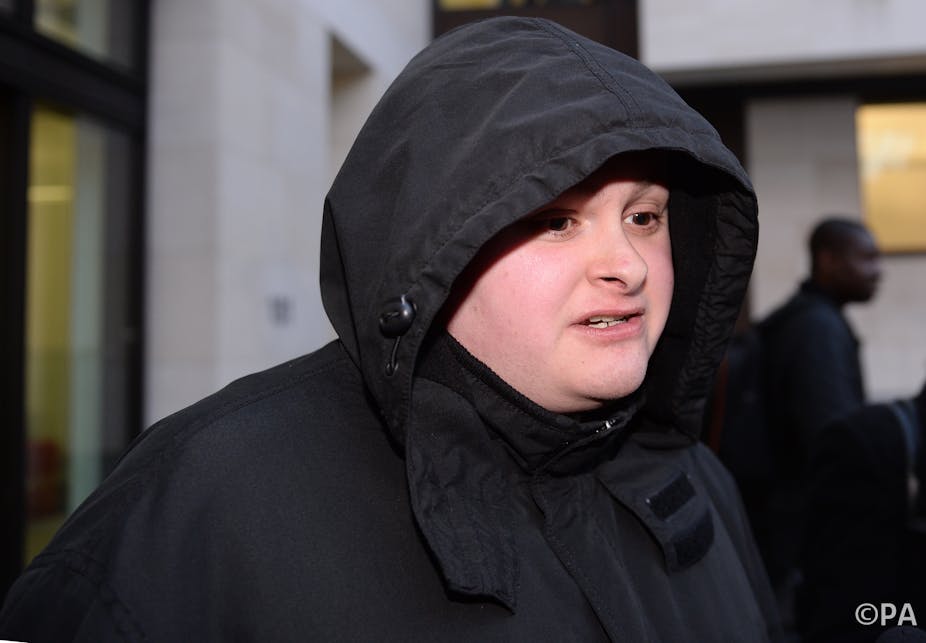Two people have been jailed for making threats and sending abusive messages on Twitter to Caroline Criado-Perez, the feminist campaigner who sought to have a woman put on a British bank note.
Isabella Sorley was sentenced to 12 weeks in prison for the abusive tweets she directed at Criado-Perez and John Nimmo was sentenced to eight weeks, the judge noting that Nimmo showed a lack of sympathy for his victim when delivering his decision. Both had already pleaded guilty last month to sending abusive tweets to Criado-Perez.
A prison sentence was, arguably, inevitable for these two offenders, who have been held up as examples of what can happen if abuse is perpetrated online. The fact that mobile technologies are becoming so popular and are likely to continue to grow in popularity poses real and challenges for policing.
For many, that one of the offenders is female is difficult to understand. It was initially assumed that the anonymous abusers involved in this case would be male because of the sexualised nature of the threats, but this was later revealed not to be the case.
This in fact is the power of anonymous online threats. When Criado-Perez experienced a sustained barrage of sexualised threats from Sorley and Nimmo and many others, she did not know who was behind them. Had she known it was an intoxicated woman who lived miles away from her, she might not have felt as threatened by them. But she did not know this at the time. And besides, they were a small number of the hundreds she recieved. The threats could have come from a neighbour, an ex-partner, a colleague, or a stranger at the end of her street. The same goes for other victims in the case, including MP Stella Creesey.
Criado-Perez is not the first, and nor will she be the last, woman to receive sexualised abuse after speaking out about a topic she felt passionate about. Guardian journalist Julie Bindel has long talked about the threats she received, I’ve received them, as have other prominent and outspoken feminists. But Twitter has made this abuse and harassment visible, and in making it visible, this has also encouraged others to participate in sexualised bullying tactics. It is happening on a more extreme and more visible scale thanks to social media.
“Stop responding”, “Just take yourself off Twitter for a while” are suggestions often made when this kind of abuse happens. “Don’t feed the trolls” is another common saying.
But why should women be told to be quiet? Why should a part of this world be shut off to women’s lives because of sexualised bullying? To shut up in the face of abuse is not an option for many feminists. Of course, lots of people in the public eye get abusive emails and are bombarded by message from people who disagree with what they say in the comments sections of online news sites, so what is different about women, and what is different about this case?
People who speak out publicly about violence against women are frequently objects of gender-based hate speech. And this is what makes it different for women. A man may be abused and threatened with violence if they are in the public eye, but the nature of the threats are different. Rarely would a man be sent threats of the sexualised nature faced by women.
The normalisation of the abuse of women and the extensive reach of the internet mean that this vilifcation is reaching dangerous levels, as a group of bloggers wrote in 2011. While “radical” feminists are obviously a popular target for such hate speech, the group points out that they are not the only targets. They cite the example of a female blogger for Catholic Voices, who reports receiving at least five sexually threatening emails a day. One of the messages, which was classed as one of the least obscene (and therefore printable), read: “You’re gonna scream when you get yours. Fucking slag. Butter wouldn’t fucking melt, and you’ll cry rape when you get what you’ve asked for. Bitch.”
The abuse that many women faced in private is now public, and as the feminist slogan goes, the personal is the political. This is why the Criado-Perez ruling is so important. It is now recognised as happening, and as happening as part of the political struggle.
Some of the earliest feminist writing on rape was about the threat of rape and about how this affected the way women lived their lives. Susan Brownmiller famously described rape as a “conscious process of intimidation by which all men keep all women in a state of fear”, seeking to redefine rape as a crime of violence and power rather than one of sex and lust. In other words, not all men need to rape for this to affect all women.
Likewise, not all women have to be abused on Twitter for them to feel this is not a safe space for them. Not all, or even any, of the women on Twitter need to actually be raped to be influenced by the threat of rape. It is enough that it exists, and is used as a threat to limit lifestyles.
Criado-Perez continues to receive online abuse through Twitter, women continue to be abused in interpersonal relationships through social media, and the availability of apps such as “track your wife” show the dangers associated with mobile technology. But I, along with Criado-Perez, Creasy, and the online campaigns to end violence and abuse, will continue to use it and continue to claim it as a space for women.

